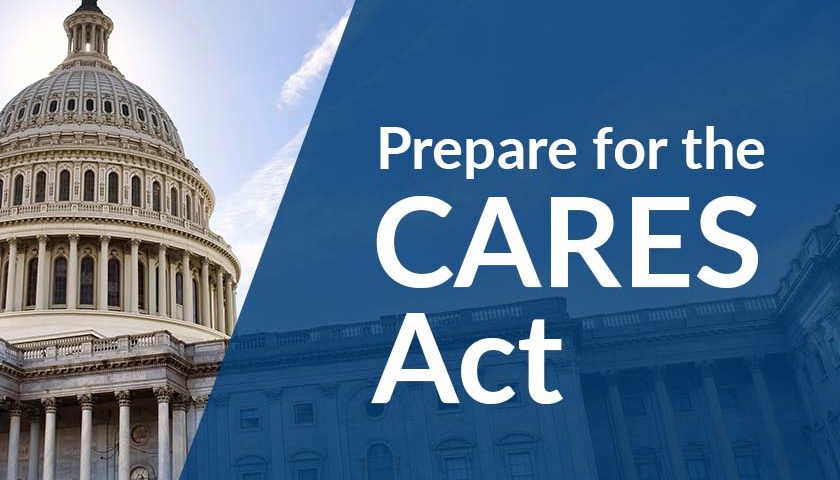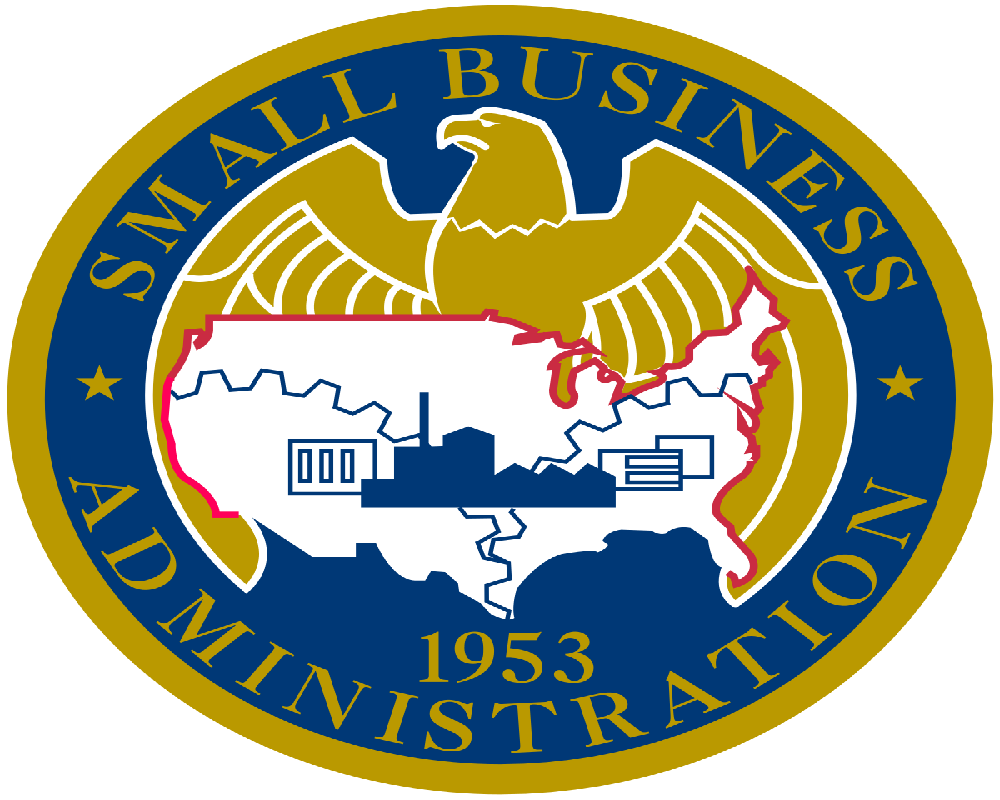Blog 
Click here to go back
Check our blog for updates on regulations or resources that can be used to help you and your business achieve your financial goals.
What You Need to Know....Coronavirus Stimulus Package - CARES Act
 On Friday, President Trump signed the Coronavirus Aid Relief and Economic Security Act (CARES Act) into law. The CARES Act provide significant financial assistance to individuals and businesses, among others. Below are some resources links as well as some of the highlights of this historical $2.2 trillion stimulus package and how it affects you as an individual and/or a business..
On Friday, President Trump signed the Coronavirus Aid Relief and Economic Security Act (CARES Act) into law. The CARES Act provide significant financial assistance to individuals and businesses, among others. Below are some resources links as well as some of the highlights of this historical $2.2 trillion stimulus package and how it affects you as an individual and/or a business..
Resource Links:
US Chamber of Commerce Coronavirus Emergency Loan Small Business Guide and Checklist
National Law Review CARES Act Summary
National Law Review - Pay Check Protection SBA Loan Program
INDIVIDUALS
Direct payments to some taxpayers through Recovery Rebates
The CARES Act provides recovery rebates of up to $1,200 for individuals with adjusted gross income (AGI) up to $75,000 ($2,400 for joint filers with AGI up to $150,000), plus an additional $500 for each child under the age of 17 (subject to certain exceptions) for US taxpayers through an advance refundable tax credit against 2020 income taxes.
There is a phase-out of the rebate, which causes a $50 reduction in the rebate for every $1,000 of AGI above these thresholds. For example, individuals with no children having AGI of more than $99,000 and married couples with no children filing jointly with AGI of more than $198,000 would be phased-out completely and receive no recovery rebate.
The recovery rebate will be based on the AGI reported on returns filed for 2019. If no return has been filed yet for 2019 the AGI reported on the 2018 tax return will be used. Delaying the filing of the 2019 tax return may be beneficial for some.
Expanded unemployment benefits
The Act provides an extra $600 per week in addition to state unemployment benefits. This additional amount applies to unemployment payments made from the date of the law's enactment through July 31, 2020 (approximately 4 months).
Coronavirus-related distributions from retirement plans (IRAs, 401(k)s, and others)
Individuals may take distributions from qualified retirement plans of up to $100,000 without the distributions being subject to the 10% early withdrawal penalty.
Retirement plan distributions are still subject to income tax, which may be spread out over a 3 year period beginning with 2020. You can recontribute the funds back into the retirement account within 3 years without regard to annual contribution limits and treat the distribution and later recontribution as a totally tax-free rollover.
Temporarily Waiving the 2020 Required Minimum Distribution (RMD) from retirement accounts
The Act temporarily waives the required minimum distribution rules for 2020, therefore permitting a further deferral of taxes and allowing account balances to rebound.
Expanded tax deduction for charitable contributions
The Act allows taxpayers to take an above-the-line tax deduction for charitable contributions of up to $300 for the tax year beginning in 2020.
The Act also increases the limitation on charitable contribution deductions for the 2020 tax year. For corporations, the 10% of taxable income limitation is increased to 25%. For individuals, the 15% limitation is increased to 25%.
Student Loans
All payments of principal and interest for certain federal student loans are suspended through September 30,2020. The suspended payments are treated as if made for consumer credit reporting.
The CARES Act also waives or modifies requirements with respect to the receipt of federal education grants, and allows deviations in the use and distribution of such grants. Further, provisions are made for students who have withdrawn from school or relocated due to the COVID-19 crisis.
Federally Backed Mortgages
Borrowers under federally backed family mortgages may submit a forbearance request if they are experiencing financial hardship due to the COVID-19 crisis. The lender must grant the request, without penalties, fees or interest, for a period of up to 180 days (subject to another 180 day extension at borrower’s request). Foreclosure action is prohibited for the 60 day period beginning March 18, 2020.
Multi-family borrowers (assets designed for occupancy of 5 or more families) are entitled to forbearance and foreclosure protection on slightly different terms, and renters of such dwellings are provided eviction protection.
BUSINESSES

Paycheck Protection Program - Forgivable SBA Loan
The CARES Act creates a new type of loan for the United States Small Business Administration (SBA) to administer. Unlike the disaster loans currently available through the SBA, these loans are potentially forgivable up to 100% of the principal amount borrowed. Additionally, unlike the disaster loans, these forgivable loans are not tied directly to establishing losses suffered during the national disaster — there is a presumption of negative impact from COVID-19. These loans do not require collateral or guarantees. What this means to you is that the other eligibility requirements of the SBA loan participation (e.g., average annual receipts) are not applicable, and this program is available (i) to many new businesses not otherwise able to avail themselves to the SBA loan programs, and (ii) provides much friendlier terms than traditional SBA loan programs.
Eligibility
Eligible entities are those with less than 500 employees, including the following:
- Businesses
- 501(c)(3) nonprofit organizations
- Veterans organizations
- Certain tribal business concerns
- Eligible self-employed individuals
- Independent contractors
- Sole proprietorships
- Businesses in the accommodation and food services industry (NAICS 72) that have less than 500 employees per physical location
For the purposes of determining the 500 employee threshold, applicants should include full time, part-time and other basis employees. General SBA affiliations apply except such rules are waived with respect to:
- Businesses in the accommodation and food services industry (NAICS 72),
- Franchises assigned a franchise identifier code
- Business licensed under Section 301 of the Small Business Investment Act
Amount of Loan
Generally, the amount of the loan is capped at the lesser of $10 million and 2.5 times the average monthly payroll costs incurred in the one-year period before the date of the loan. Payroll costs include salary/wages/tips, sick/family leave/PTO, severance payments, group health benefits (including insurance premiums), retirement benefits, and state or local taxes assessed on employee compensation. However, for any employee who is paid more than $100,000 salary, only the amount up to $100,000 (prorated for the covered period) is calculated into the number.
In the case of seasonal employers, the employer may choose to calculate the average monthly payroll costs based on the 12-week period starting February 15, 2019 or the period starting March 1, 2019 through June 30, 2019.
In the case of new employers not in business between February 15, 2019 and July 30, 2019, the average monthly payroll costs is calculated based on the period beginning January 1, 2020 through February 29, 2020.
Terms of Loan
An eligible borrower may receive one covered loan, and such proceeds may be used for: payroll costs; continuation of group health care benefits during periods of paid sick, medical, or family leave, or insurance premiums; salaries or commissions or similar compensation; interest on mortgage obligations; rent; utilities; and interest on other outstanding debt.
The terms of the amount of any portion of the loan that is not forgiven will be for a term not to exceed 10 years and at an interest rate of no more than 4%.
Notably, certain SBA requirements are waived. Loans are available with:
- No personal guaranties of shareholders, members or partners
- No collateral
- No proving recipient cannot obtain funds elsewhere
- No SBA fees (may still have to pay lender processing fee)
- No prepayment fee
Forgiveness
The amount of the loan that is forgivable is the sum of the payroll costs, mortgage interest payment, rent, and utilities incurred or paid by the borrower during the 8-week period beginning on the loan origination date. If the recipient of the loan laid off employees or reduced wages/salaries of its workforce in the period between February 15, 2020 and June 30, 2020, the amount of forgiveness is reduced proportionally by (i) any reduction in employees retained compared to historical levels, and (ii) the decrease in pay of any employee beyond 25% of their historical compensation. Notably, furloughs would necessarily impact this loan forgiveness analysis as well.
To encourage workforce stabilization, the CARES Act takes into account that many businesses might already have or are planning to lay off personnel or cut salaries. If those changes were made between February 15, 2020 and April 26, 2020, those changes are not counted if the business rehires the number of personnel or returns the adjusted salary, as applicable, by June 30, 2020.
Borrowers must apply for forgiveness with the lender servicing the loan. Lenders have 60 days to review and make a determination. Any portion of the loan that is forgiven will be excluded from gross income.
Related Assistance
The CARES Act also creates a new grant program under the SBA’s Office of Disaster Assistance to provide quick relief for applications awaiting processing of SBA Economic Injury Disaster Loans (“EIDL”). Loan applicants can get up to $10,000 to cover immediate payroll, mortgage, rent, and other specified expenses. This grant does not have to be repaid. A business that receives an EIDL can apply for, or refinance its EIDL into, the forgivable loan product.
Further, lenders on existing SBA backed loans are encouraged to provide payment deferments and extend maturity dates to avoid balloon payment or requirements that would increase debt as a result of deferment. The SBA will pay lenders the deferred principal and interest for a period.
The CARES Act also provides assistance to businesses through the modification of rules related to net operating losses (“NOLs”), interest expense deductions, alternative minimum tax credits and trade or business losses of non-corporate taxpayers. Many of these modifications are designed to provide critical cash flow and liquidity to businesses during the COVID-19 emergency, including through amending prior tax returns to obtain tax refunds. What this means to you is that employers have several tools available to them to help with cash flow, claim tax refunds, or reduce upcoming tax payments. Below are some of those tools:
Employee Retention Credit
Under the CARES Act, employers may be eligible for a refundable tax credit for the employer’s share of the 6.2% Social Security tax (the “SSI Tax Credit”). The potential SSI Tax Credit is for 50% of the first $10,000 in qualified wages (including health plan expenses) paid to each employee commencing on March 13, 2020.
To be eligible, an employer must (i) have had operations fully or partially suspended because of a shut-down order from a governmental authority related to COVID-19, or (ii) have had gross receipts decline by more than 50% in a calendar quarter when compared to the same quarter in 2019 (and will remain eligible until the earlier of (i) gross receipts exceeding 80% relative to the same quarter in the prior year, or (ii) December 31, 2020). For employers with more than 100 employees (based on 2019 employment levels), qualified wages are limited to wages paid to employees who were not providing services due to the COVID-19 crisis.
Note, however, that the SSI Tax Credit is not available if the employer receives a covered loan from the SBA, as discussed above under Forgivable SBA Loan Program.
Payroll Tax Deferral
In addition to potentially receiving the SSI Tax Credit, the CARES Act allows employers to defer the payment of the employer’s share of the 6.2% Social Security tax on wages paid beginning on March 27, 2020 and ending on December 31, 2020. A corresponding deferral is also permitted for the equivalent portion of self-employment taxes.
The deferred amounts are payable in two installments, with 50% of such taxes being due on December 31, 2021, and the remainder due on December 31, 2022.
Note, this deferral of Social Security taxes is not, however, allowed where the employer has had a covered loan forgiven, as discussed above under Forgivable SBA Loan Program.
Business Interest Deductions
For the 2019 and 2020 tax years, taxpayers may elect to increase the limit on allowable business interest deduction from 30% to 50% of adjusted taxable income (“ATI”). In addition, taxpayers can elect to use their adjusted taxable income (ATI) in 2019 in place of their 2020 ATI for purposes of determining the deductibility of their business interest expense for 2020, which could increase the business interest deduction. Partnerships are subject to special provisions. This provision is intended to allow businesses to increase liquidity with a reduced cost of capital, so that the businesses are able to continue operations and keep employees on payroll.
Net Operating Losses
The 2017 tax reform bill changed the treatment of NOLs. The CARES Act relaxes these limitations on a corporation’s use of NOLs. The CARES Act allows businesses to carry back NOLs incurred in 2018, 2019, and 2020 for five years (excluding offset to untaxed foreign earnings transition tax). Previously, these NOLs could only be carried forward. This could be significant for businesses that have the ability to carry back NOLs to offset income that was taxed at 35% before 2017 tax reform.
In addition, for taxable years beginning prior to January 1, 2021, taxpayers can offset 100% of taxable income with NOL carryovers and carrybacks (instead of limiting such offsets to 80% of taxable income). If there are refunds available by operation of these new rules, corporations can use the IRS’s quick refund procedures (Form 1139) to claim the refund.
There are several other provisions in the CARES Act that are not highlighted above. Those provisions include, among others, enhancements to the nation’s programs to support the health care system, provisions and investments to improve the nation’s preparation for future outbreaks, and the providing of relief for educational institutions and other designated industries.
As always, please feel free to reach out to us to see how these provisions can best help you during this time.
Stay safe and healthy!


